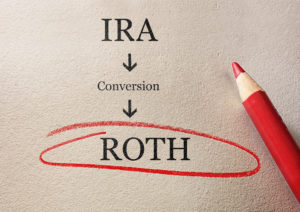Just about everyone I know has a memory of something that scared them as a kid. For some, it was the monster in their closet at night. Or the recurring nightmare after you watched your first horror movie, unbeknownst to mom and dad. Or maybe even having to walk past the house on the end of the block that all the kids say is haunted. Most of us grow up and these fears fade over time, usually sounding silly to us as we age.
For a lot of folks, these fears are replaced by more “mature” things. Perhaps something more real or likely to happen. I had a conversation recently with a client of mine from Duxbury, let’s call him “Dan”. Dan and his wife “Denise” are a few years older than Jill and I and are looking to retire by their mid-sixties. Dan is an architect with a small firm and Denise works at a Montessori school near the Cape. They’re not millionaires but they are good savers and manage to their budget very well.
Dan came in to the office a week or so ago, alone to meet with me because Denise was away at a professional development conference for educators. We began to talk about the change of seasons and Dan talked about how Halloween in particular used to be one of his favorite holidays, especially when his 2 sons – now grown – were younger and loved to dress up and go trick-or-treating. Our conversation of all-things-scary prompted Dan to say, “You know, Jeff, thirty years ago my biggest fear was that I was going to drop my new baby boy on his head. I was a new parent with no idea what I was doing, and it scared the heck out of me.”
And now? Dan told me those fears quickly abated once his second son arrived and he figured out this parenting thing. But they’ve since been replaced, this time by retirement-related concerns. He mentioned that the fear of not having enough saved for him and Denise to retire comfortably sometimes keeps him up at night. Heck, even with a solid retirement system in place, one built to support investment, income, and advanced tax planning, these fears still creep into his head from time to time. The glut of news headlines about raging inflation, a possible recession, and rising health care costs in retirement can set off a new set of worries and he needs to talk himself down sometimes.
And folks, Dan’s not alone. Get this, a new survey from asset management firm, Schroeders, indicates that Americans nearing retirement are often struck with fear over their ability to maintain an adequate income after they retire₁.
The survey from early 2022 included responses from Americans between the ages of 45 and 75 and found some disturbing facts. For example, among those still working, a full 33% are “terrified” about giving up regular paychecks. 53% are “concerned” about how they will cope without a regular paycheck, and 55% ages 60-65 do not believe they will be able to replace even three-quarters of their paycheck in retirement. In addition, of those already retired, 49% don’t have any written strategy to generate retirement income, instead expecting to count on withdrawals from savings and 401(k)s.
With pension plans a rarity these days, the burden of saving for retirement lies largely with the individual. Most companies instead offer employees a defined contribution plan such as a 401(k), 457(b) or other such qualified retirement plan. The individual is required to make their own contributions, and some may receive matching contributions from their employer up to a predetermined amount.
However, for an employer plan to be an effective retirement savings tool, it needs to offer the investment options consumers need to meet their savings and income goals. A portfolio that consists solely of market-based investments will not offer the level of confidence retirees need to meet their goal of dependable and steady income for decades.
According to Schroeder’s survey, fewer than half (48%) of survey respondents with a defined contribution plan said their plan offers retirement income products. Most of the options available are mutual funds, and they may include index funds, large-cap and small-cap funds, foreign funds, real estate funds, and bond funds. They usually range from aggressive growth funds to conservative income funds, and none of these choices guarantee a certain level of lifetime income in retirement.
Some good news, though – almost 9 in 10 (89%) in retirement plans that do offer guaranteed income options, specifically an annuity within their plan, say they are likely to use them when they retire, keeping assets in their employer’s plan. Of those who do not have (19%) or are unsure if they have (33%) a retirement income product in their plan, 62% said they wish they did.
If you’re one of the lucky plan participants who has access to a guaranteed income option, make sure you consider it as a potential income stream to supplement your Social Security income. If not, don’t let your retirement income fears take over – connect with a retirement professional, one held to a fiduciary standard, and look into options that can make a comfortable retirement something to look forward to – not feared . . . just like Dan did.
And as always – be vigilant and stay alert, because you deserve more!
Have a great week.
Jeff Cutter, CPA/PFS is President of Cutter Financial Group, LLC, an SEC Registered Investment Advisor with offices in Falmouth, Duxbury, and Mansfield, MA.
Insurance offered through its affiliate, CutterInsure, Inc. We do not offer tax or legal advice. Jeff can be reached at jeff@cutterfinancialgroup.com. This information is intended to provide general information. It is not intended to offer or deliver investment advice in any way. Information regarding investment services is provided solely to gain a better understanding of the subject of the article. Different types of investments involve varying degrees of risk, including the potential for loss. Therefore, it should not be assumed that future performance of any specific investment or investment strategy will be profitable. Insurance product guarantees are backed by the financial strength and claims-paying ability of the issuing company. Market data and other cited or linked-to content is based on generally available information and is believed to be reliable. Cutter Financial does not guarantee the performance of any investment or the accuracy of the information contained in this article. Cutter Financial will provide all prospective clients with a copy of Cutter Financial’s Form ADV 2A, Appendix 1, applicable Form ADV 2Bs and Form CRS as well as the firm privacy policy. Please contact us to request a free copy via .pdf or hardcopy. 1. https://tinyurl.com/4fnrfn95








